

Here i want to share about my write-up for the room Introduction to SIEM ↗, an introduction to Security Information and Event Management. I wrote this in 2025 and hope it is useful for learning about cybersecurity.
Task 1: Introduction#
SIEM stands for Security Information and Event Management system. It is a tool that collects data from various endpoints/network devices across the network, stores them at a centralized place, and performs correlation on them.
What does SIEM stand for?
Security Information and Event Management system
Task 2: Network Visibility through SIEM#
Network log sources can be divided into two logical parts: Host-Centric Log Sources and Network-Centric Log Sources.
- Host-Centric Log Sources capture events that occurred within or related to the host.
- Network-Centric Log Sources are generated when the hosts communicate with each other or access the internet.
Some key features provided by SIEM are:
- Real-time log Ingestion
- Alerting against abnormal activities
- 24/7 Monitoring and visibility
- Ability to investigate past incidents
Is Registry-related activity host-centric or network-centric?
host-centric
Is VPN related activity host-centric or network-centric?
network-centric
Task 3: Log Sources and Log Ingestion#
Common Devices#
- Windows Machine: Windows records that can be viewed through the Event Viewer utility.
- Linux Workstation: Linux OS stores related logs in common locations such as
/var/log/httpd,/var/log/auth.log, and/var/log/kern. - Web Server: It is important to keep an eye on all the requests/responses coming in and out of the webserver.
Log Ingestion#
Some common methods used by SIEM solutions for ingesting logs are:
- Agent / Forwarder
- Syslog
- Manual Upload
- Port-Forwarding
In which location within a Linux environment are HTTP logs stored?
/var/log/httpd
Task 4: Why SIEM#
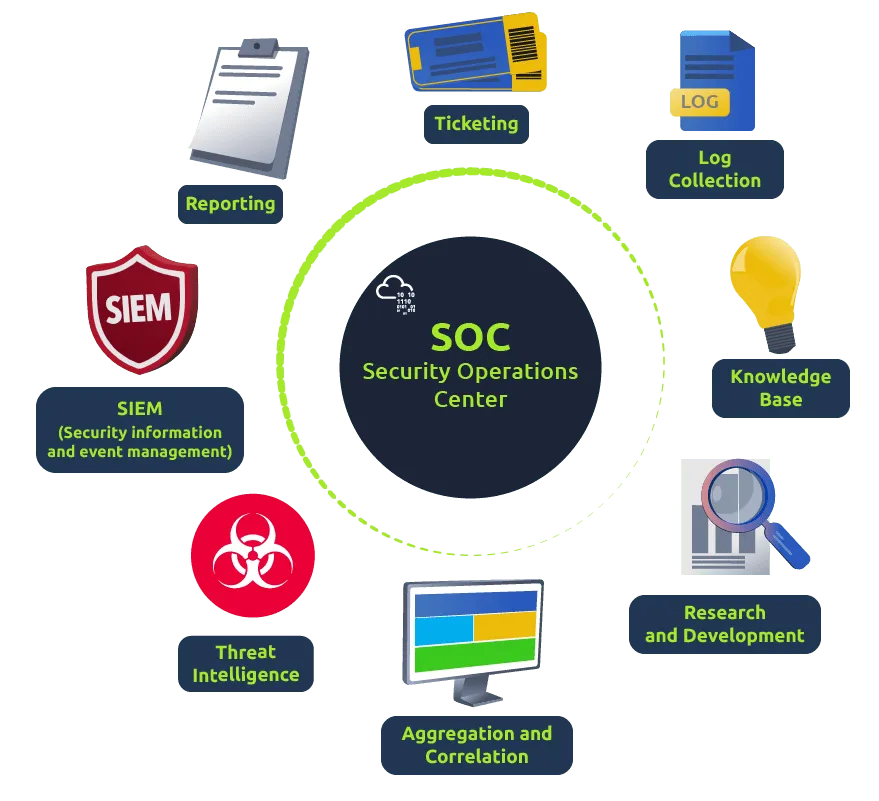
Read the task above.
No answer needed
Task 5: Analysing Logs and Alerts#
Which Event ID is generated when event logs are removed?
104
What type of alert may require tuning?
False Alarm
Task 6: Lab Work#
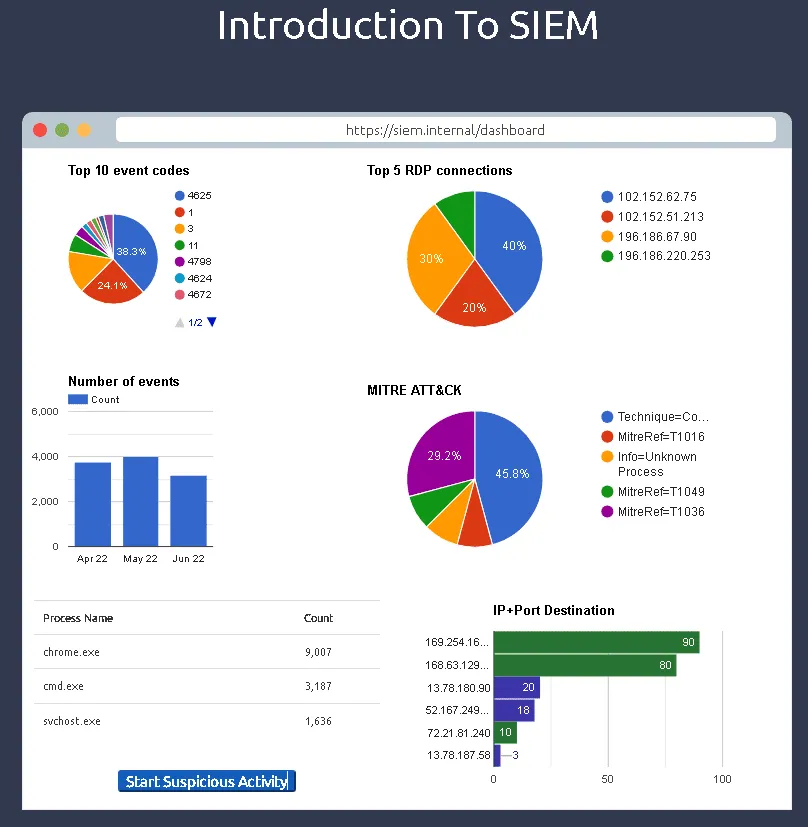
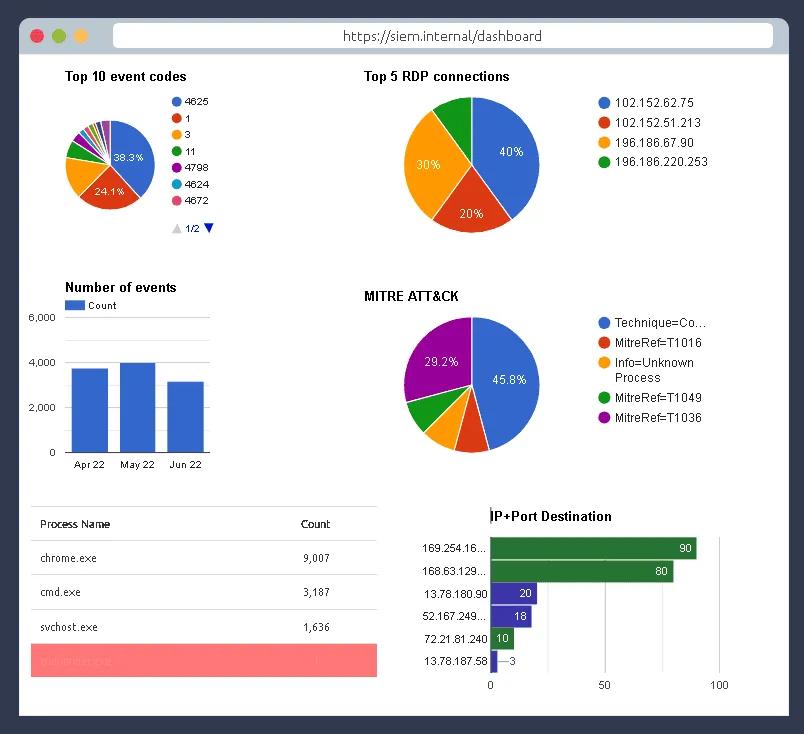
Click on Start Suspicious Activity, which process caused the alert?
cudominer.exe
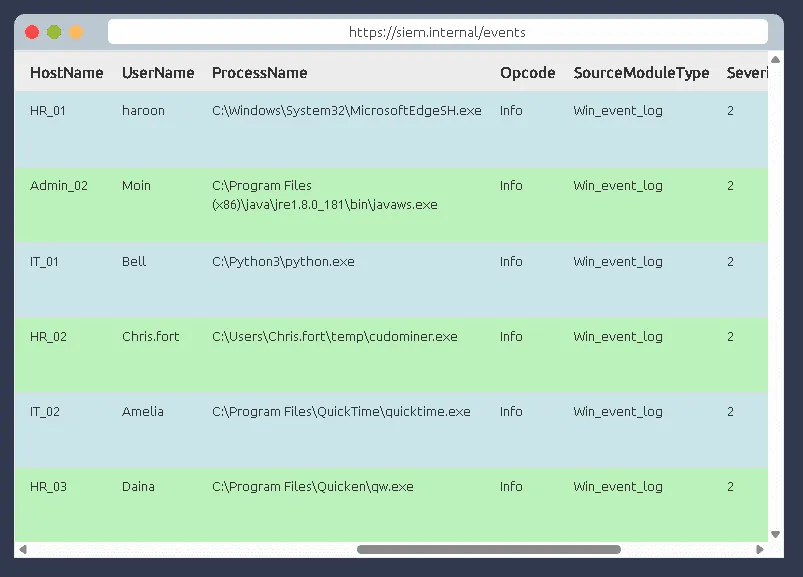
Find the event that caused the alert, which user was responsible for the process execution?
chris.fort
What is the hostname of the suspect user?
HR_02
Examine the rule and the suspicious process; which term matched the rule that caused the alert?
miner
What is the best option that represents the event? Choose from the following:
- False-Positive
- True-Positive
True-Positive
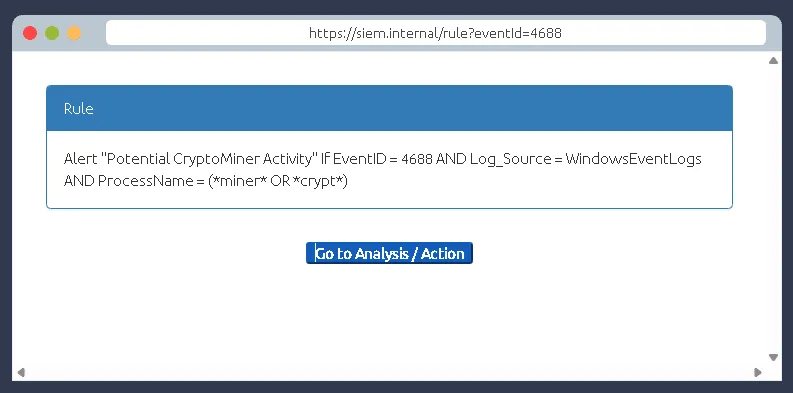
Selecting the right ACTION will display the FLAG. What is the FLAG?
THM{000_SIEM_INTRO}
Task 7: Conclusion#
Complete this room.
No answer needed